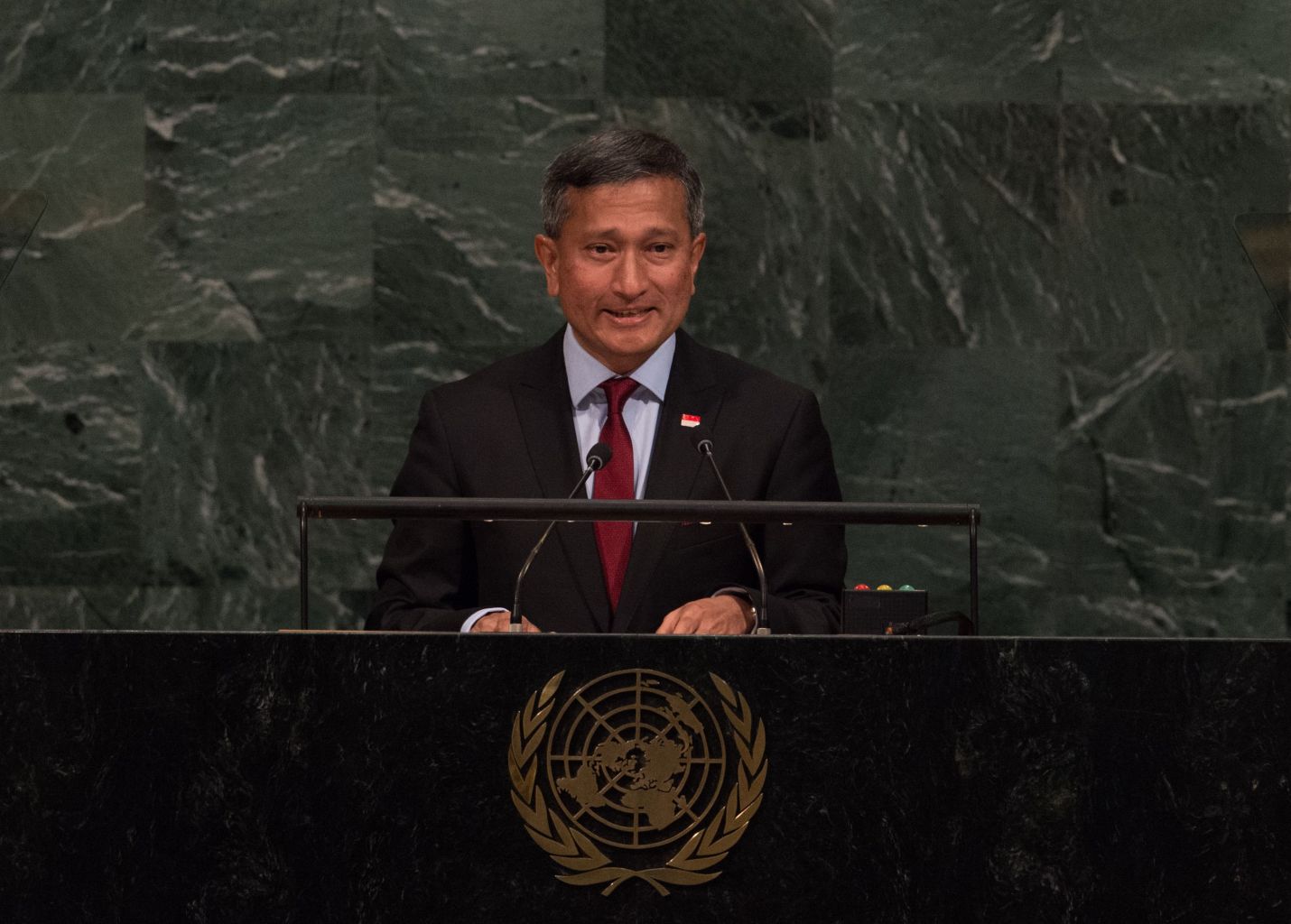Singapore strongly condemns North Korea missile and nuclear tests, says Vivian Balakrishnan in UN speech
Sign up now: Get ST's newsletters delivered to your inbox

Dr Balakrishnan addresses the 72nd Session of the UN General Assembly at the UN headquarters in New York.
PHOTO: AFP
Follow topic:
WASHINGTON - Singapore strongly condemns North Korea's "reckless" missile and nuclear tests, and calls on it to avoid further provocative actions, said Minister for Foreign Affairs Vivian Balakrishnan.
In Myanmar's Rakhine state, a humanitarian disaster had occurred in the wake of a terrorist attack and related acts of violence, he said. He visited Naypyitaw last week and had "a frank discussion" with de facto Myanmar leader Aung San Suu Kyi, he noted in his address to the 72nd United Nations General Assembly (UNGA) on Saturday (Sept 23) in New York.
Cautioning that the conflict had deep historical roots and could not be resolved overnight, he said: "Asean supports Myanmar seeking a long-term solution to restore stability. Singapore will work with Asean and Myanmar to extend humanitarian assistance to all affected communities."
"Extremists everywhere have a common playbook," he warned. "First commit an egregious act of violence; second, stick a religious label on the situation in order to convey a sense of us versus them; third, to eliminate the grey zone of moderates by causing alienation due to an overreaction. We must be very careful we don't fall into the trap."
Dr Balakrishnan also warned of old fault lines of race, religion and language, renewed anxiety about jobs and inequality; and new technologies and non-state actors challenging the international order.
He spoke about the importance of multilateralism, an open global economy, and inclusive economic growth. A universal, rules-based multilateral system is essential to solving the complex challenges facing the world, he said.
"A strong multilateralism system reinforces the resilience of individual states," he said. "This is particularly true of small states. We depend on a rules based multilateral system for our survival and our success."
"No nation can solve trans boundary problems alone, we need to work with each other, build consensus and find effective solutions to global problems," he said, adding that the UN played a critical rule as the only universal body best placed to address the problems of the global commons.
"The United Nations plays a critical role, as a platform for cooperation, based on the principles of mutual respect, mutual benefit and international law," he said, adding: "When dealing with global issues like climate change there really is no alternative to the multilateral approach."
He said an open global architecture is essential for growth and sustainable development.
Inclusive economic growth is a prerequisite to building resilient societies. "The challenge for every government is to generate higher growth and create more jobs while ensuring that no one is left behind," he said. "We need to make sure there is inclusive economic growth that lifts all communities."
"It important especially at this time to remain steadfast amidst growing calls for rising protectionism," he cautioned.
An open trading system had brought hundreds of millions out of poverty, with the rise of a prosperous middle class in Asia, Africa and Latin America associated with peace and stability, he noted.
Dr Balakrishnan hosted the 10th Global Governance Group (3G) Ministerial Meeting over breakfast on Friday. The meeting of the informal coalition of 30 small and medium-sized member-countries of the United Nations was attended by the foreign ministers of several countries.
They discussed global developments with a Group of 20 troika comprising China, Germany and Argentina - the previous, present and incoming presidents of the G-20, according to a statement by the Ministry of Foreign Affairs.
nirmal@sph.com.sg

